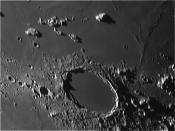Ever since the beginning of time, man has questioned his way of thinking again and again in order to rationalize his thoughts and form new concepts or principles. Some tend to hold on to those ideals and choose to disregard the new, unfamiliar ways. The Myth of the Cave is one such story where history yet once again repeats itself. The reference is made to Socrates, who was killed by people of Athens for exploring unfamiliar paths to knowledge. The story's main points include man's conscious decision to be ignorant, how this delays our progress as humans and how we should learn from this and be more open minded than insular.
This story exhibits how anyone that questions the old ways takes a risk of getting criticized or rejected. In the story, the one man who steps out of the customary boundaries of the dreary cave dwellers mind-numbing lives is killed because he actually has the sagacity to look beyond those monotonous routines and find something unique and atypical.
It is very instinctive for people to be hesitant and fearful of new ideas that impend their way of life or the only wisdom that they have established. The people that challenge themselves and explore the "light" are the ones that are blissful, since they have been enlightened and now appreciate the truth. They become capable of distinguishing reality and have therefore stepped out of the "darkness". If the people are content with what they think or they know to be true they will reject the person that ventures into the light. In the story the cave dwellers never accurately know reality; they live in obscurity, never knowing the freedom of elucidation. As the ending demonstrates, the truth-seeker regresses to the cave in hopes of enlightening his fellow prisoners. Unfortunately, they...


